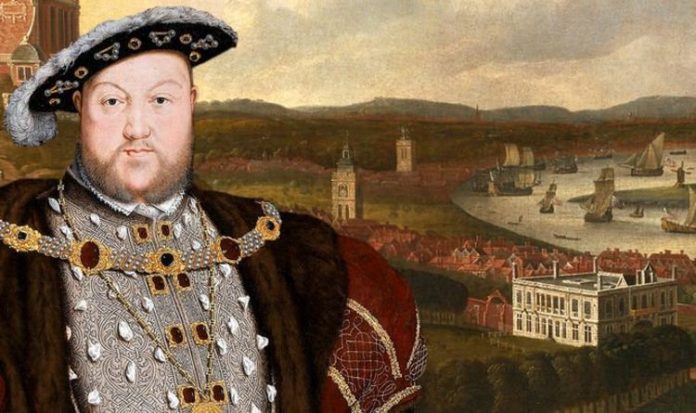Experts at the University of Greenwich, working alongside Royal Museums Greenwich, were stunned as they pinpointed the exact location of the tiltyard where Henry VIII’s last joust occurred. Historians have long argued that as a result of an injury he sustained while jousting, Henry VIII’s movement was severely hampered, which led to the monarch’s massive weight gain. This weight gain, it is believed, would ultimately lead to his demise.
But the experts were amazed as they unearthed the tiltyard, as they had long believed the location of the area was completely different to where it was found.
Simon Withers, who is in charge of the research team, said: “When people ask me how I spent lockdown, I say ‘well, we found a palace’.
“It was always known to be underfoot but, until our find, the tiltyard towers had been believed to be elsewhere.
“Ground-penetrating radar sends pulses into the ground which are reflected back giving an image of what lies below.
“The images recorded on the radargrams are tantalisingly ambiguous and it has taken some time to reconcile these with what had long been considered to be the location of the tiltyard.”
The scans were from the National Maritime Museum, and found that one of the palace’s octagonal towers was actually further east than experts had originally thought.
The university said it was the site where Henry VIII famously was thrown off his horse in 1536, 11 years before he passed away.
In order to pinpoint the location, the researchers were able to use high-resolution ground penetrating radar, which allowed them to survey around two metres below the ground’s surface.
JUST IN: Royal mystery: Henry VIII’s devastating plea to God before death
In his earlier years, Henry VIII suffered a leg injury, which would be reopened as a result of his last joust in Greenwich.
The joust also reportedly led to Henry VIII’s mood swings, which became a trademark of his reign.
He was renowned for being short-tempered and it was estimated that by the time he had died he ordered the execution of more than 70,000 people.
He died on January 28, 1547 – on what would have been his father’s 90th birthday.







